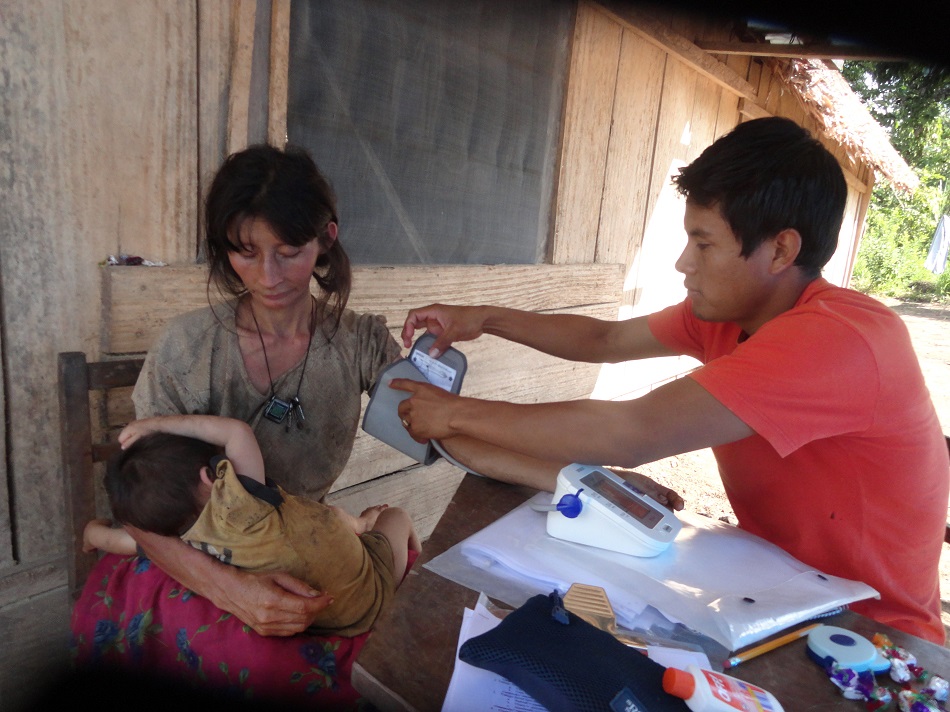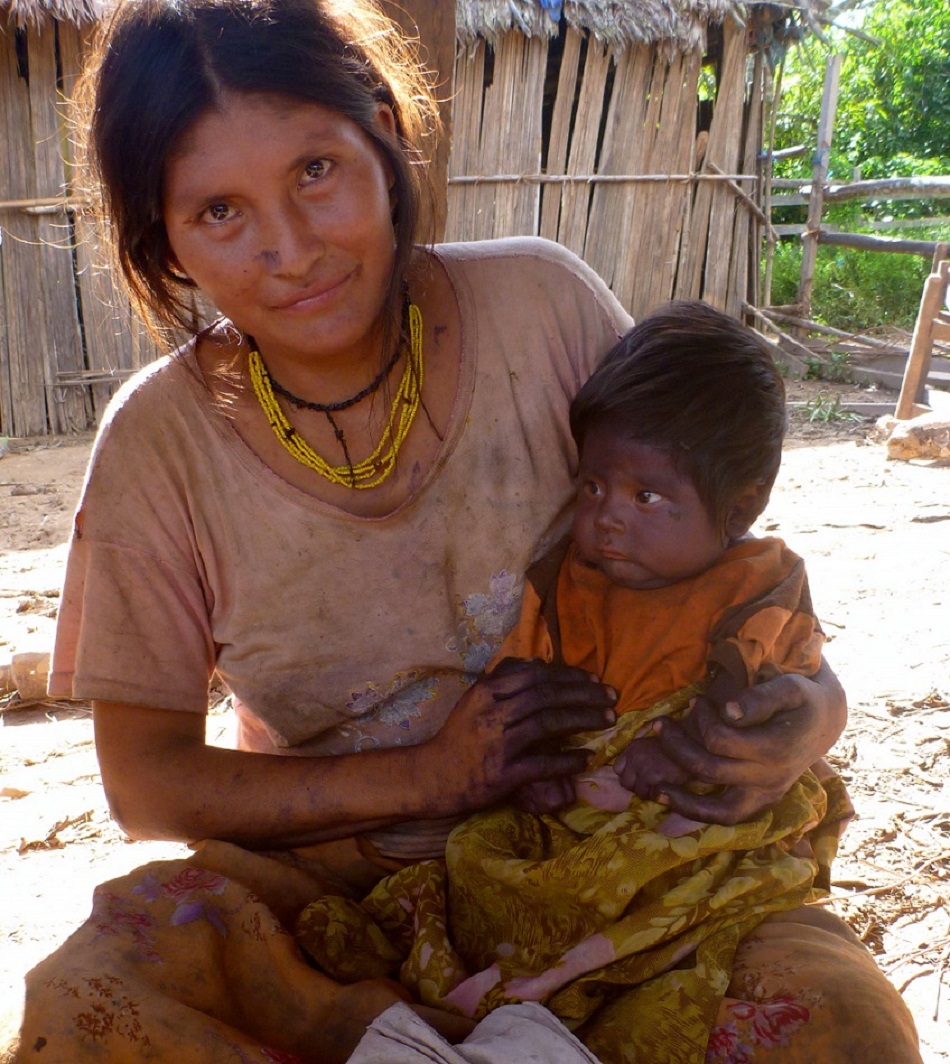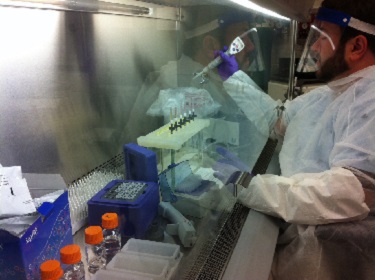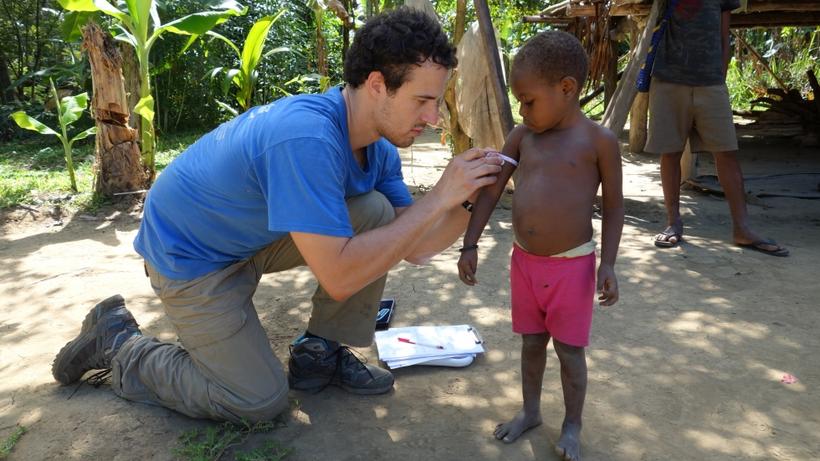Health and Medicine
Anthropologists often specialize in health-related research. Many medical anthropologists are interested in how cultural variation in lived experiences generates contemporary disparities in health. Biomedical anthropologists and human evolutionary biologists are interested in a wide range of health and evolutionary medicine topics, including modeling disease transmission dynamics and modern epidemics, investigating the metabolic pathways that underlie obesity, type 2 diabetes, allergies/asthma, and other chronic diseases, and even identifying the presence of disease, like syphilis or tuberculosis, in ancient bone materials.
At Baylor, we have several faculty members with diverse interests in health. For example, a major project of Dr. Michael Muehlenbein involves surveying over 10,000 people to date in Malaysia, Japan, St. Kitts, Gibraltar and South Africa to understand travel health knowledge, attitudes, and practices in people traveling to interact with wild animals. There is often significant risk of zoonotic disease transmission from these animals, and our own diseases can threaten many endangered species, like Great Apes. Dr. Sam Urlacher co-directs two long-term field and lab research projects that focus on evolutionary medicine and health: 1) The Shuar Health and Life History Project (among the indigenous Shuar population in Amazonian Ecuador) and 2) The Garisakang Evolutionary Anthropology Project (among the indigenous Garisakang population in lowland Papua New Guinea). Dr. Urlacher’s primary research examines the nutritional and epidemiological transitions that involve the global shift from infectious disease/undernutrition to chronic disease/overnutrition.
Additionally, Dr. Austin Reynolds is currently involved in several projects looking at how our own genetics impact our ability to fight off infectious diseases such as Tuberculosis, Malaria, and Zika virus.
Anthropology is a science complementary to Public Health
Public health encompasses both research and applied work with the common goal of achieving health for all. This universal mission combined with public health's prominent place in academia, research, non-governmental and community organizations, and as part of local, regional and national governments, make it a vital discipline in efforts to advance health equity. Academic and applied anthropologists are well suited to engage and aid with the public health mission. Indeed, it has become commonplace for medical and biological anthropologists to combine their academic training with a degree in public health. The unique expertise and training of many anthropologists also provides novel approaches to understanding and improving health. For example, cultural and medical anthropologists have expertise in many research modalities now highly sought-after in public health such as multi-sited, ethnographic, qualitative and mixed-methods approaches. Whether evolutionary medicine, life history theory or ecological anthropology, the nuanced and empirical theorizing of anthropologists provides needed grounding for areas of public health such as epidemiology. As new public health disciplines have emerged that aim to address the social sources of health inequality (e.g. social epidemiology), anthropological methods and theory have rapidly been incorporated into these efforts.
Moreover, Department Chair and Professor Dr. Muehlenbein possesses a degree in public health, specifically a dual MsPH in Tropical Medicine and Biostatistics.
Anthropologists lead global health efforts
At the level of global health, anthropologists in research and applied areas have become leaders in work to transform social and health inequity. Their skills make them particularly well-suited to this work as so many already have expertise in cross-cultural settings and at various levels of local and national government. Nearly every major international health organization has anthropologists in their employ or working as consultants. Through their work at global health organizations, anthropologists are engaged with high-level regional policy-making efforts, development planning and grant administration, emergency relief efforts, outbreak disease investigation and improving access to equitable healthcare among myriad other roles. Anthropological expertise in social and cultural determinants of disease risk has also proven vital to local foreign efforts to improve public health such as drug-use risk reduction strategies, addressing indigenous health disparities, improving efficacy of vaccination campaigns and tailoring local disease risk assessments and interventions to unique groups and places.
Please note that our department is currently developing an undergraduate concentration in global health in addition to an interdisciplinary minor in global health. Our department continues to lead the Baylor campus in global health education.




